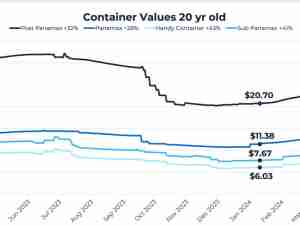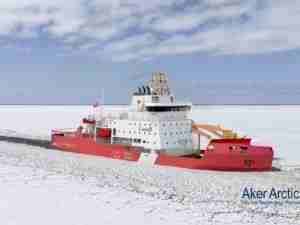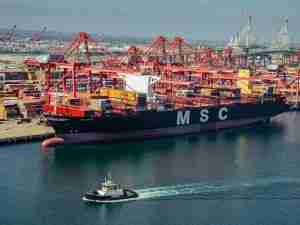Trump Still Determined to Impose Steel Tariffs, Says Nucor CEO
By: Joe Deaux | Sep 29 2017 at 04:28 PM | Maritime
The head of America’s top steel producer said he has received assurances from the White House that President Donald Trump is still determined to impose tariffs on steel imports despite repeated delays on a decision.
John Ferriola, the chief executive officer of Nucor Corp., said he was told by an official in the administration who regularly meets with Trump that the president brings up the matter several times a week. Ferriola said he has no direct knowledge of the deliberations or any indication that a firm decision had been reached.
“We remain very positive. When we met with the administration, and I’ve done it several times within the last 30 days, they say that steel is still big on the president’s mind,” Ferriola said in a phone interview on Friday. “Last week someone in the administration told me they meet with the president every day, and at least two to three times a week Trump asks, ‘Where are my tariffs? What are we doing?’”
The Trump administration missed a self-imposed deadline at the end of June to complete an investigation into whether steel imports threaten national security. Commerce Secretary Wilbur Ross, whose department is leading the probe, said in an interview with Bloomberg last week that a decision on steel tariffs has been delayed until after tax reform is completed, which Trump wants done by year-end. Commerce has until mid-January to complete its investigation under the seldom-used Section 232 of the Trade Expansion Act.
The White House didn’t immediately respond to a request for comment.
‘Big Problem’
Trump has repeatedly complained that steel dumping is distorting the global market, singling out China as a chief culprit, and said he’s considering imposing tariffs and quotas on steel imports to deal with the “big problem.” Trump’s promise to protect the domestic steel industry was part of his main campaign theme to revive manufacturing that drew in support from the Rust Belt states.
Nucor is among U.S. steel makers that have been lobbying for stronger action on steel imports, which they say will offer protection against foreign competitors who are acting unfairly by undercutting prices. Meanwhile U.S. steel users, who rely on cheaper imports, have said it could raise prices for consumer goods they manufacture.
Industry experts have warned that imposing tariffs on U.S. steel imports would risk triggering swift tit-for-tat trade reprisals. Measures on steel could complicate relations as the U.S. steps up pressure on China to help contain North Korea’s nuclear and ballistic missile ambitions.
Ross flagged the possibility of recommending imposing tariffs, quotas or a combination of the both during discussions earlier this year, according to industry representatives.
‘Risen Sharply’
Steel imports have risen 24 percent this year through August, according to U.S. Census Bureau data. Imports from China, the world’s biggest producer, are up about 7 percent this year after falling the last two years amid a raft of successful trade cases levied against the country.
Nucor two weeks ago projected third-quarter profit that trailed analysts’ estimates, saying that imports continue to hinder domestic producers. Shares of Nucor, Steel Dynamics Inc. and AK Steel Holding Corp. have fallen this quarter. U.S. Steel Corp. rose in the same period.
“Since the signing back in April of the original 232 investigation, imports have risen sharply anticipating action that would prevent them coming in the future,” Ferriola said. “So everyone wanted to get ahead of the mandates, and that’s been a problem for us.”
Ferriola said he thinks the administration should be able to pursue actions on steel tariffs as well as infrastructure policy while debates continue on tax. He said the recent devastation of hurricanes in the U.S. “screams out” for the need for infrastructure improvements.
More than 60 steelworkers last week descended on Capitol Hill to hold discussions with U.S. lawmakers and their staff about addressing global steel overcapacity and growing imports of the metal. Ferriola said the steelworkers will continue to conduct these so-called fly-ins on a regular basis, to inform lawmakers about impact these issues are having on American workers and their families.










